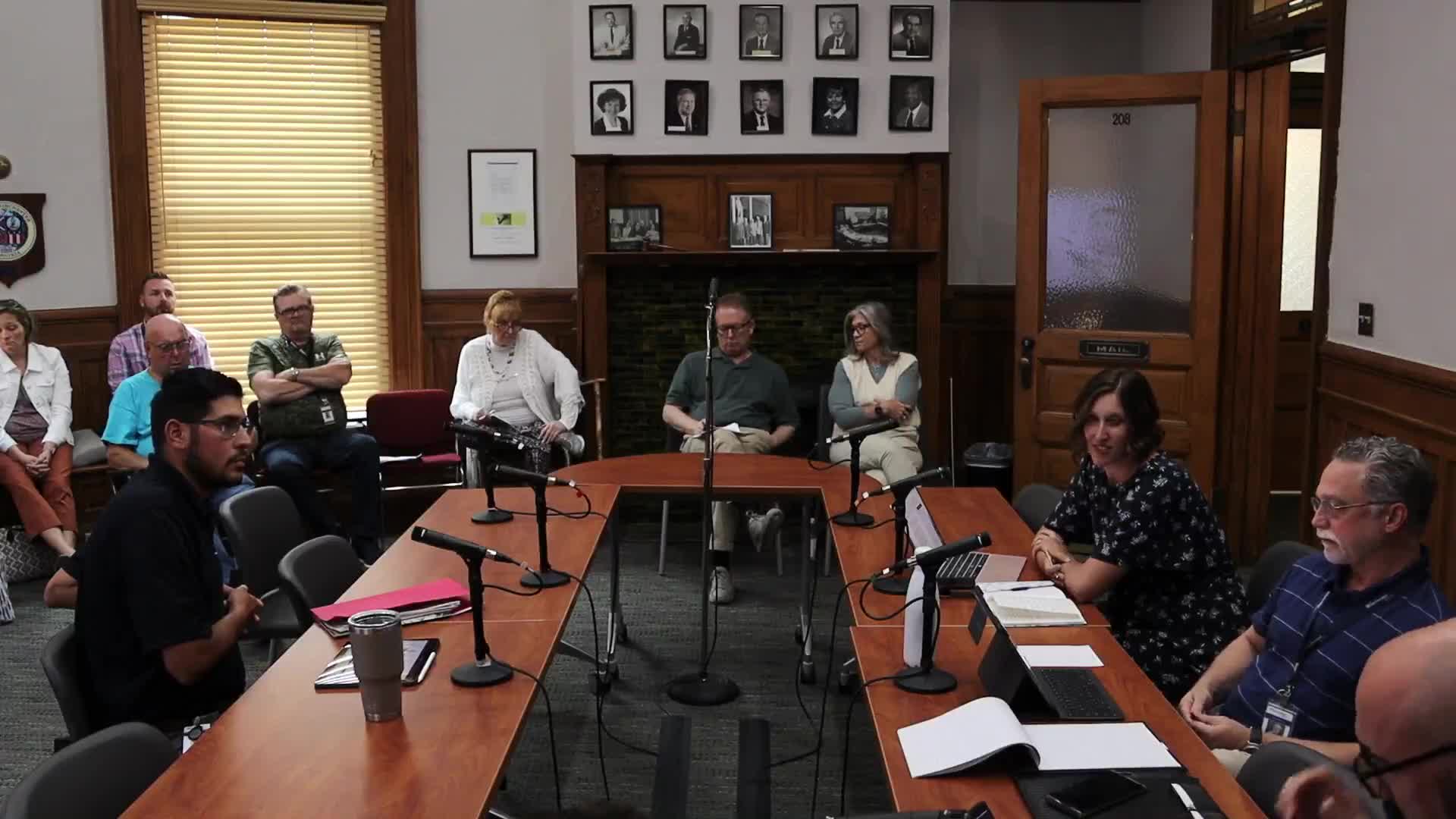Article not found
This article is no longer available. But don't worry—we've gathered other articles that discuss the same topic.
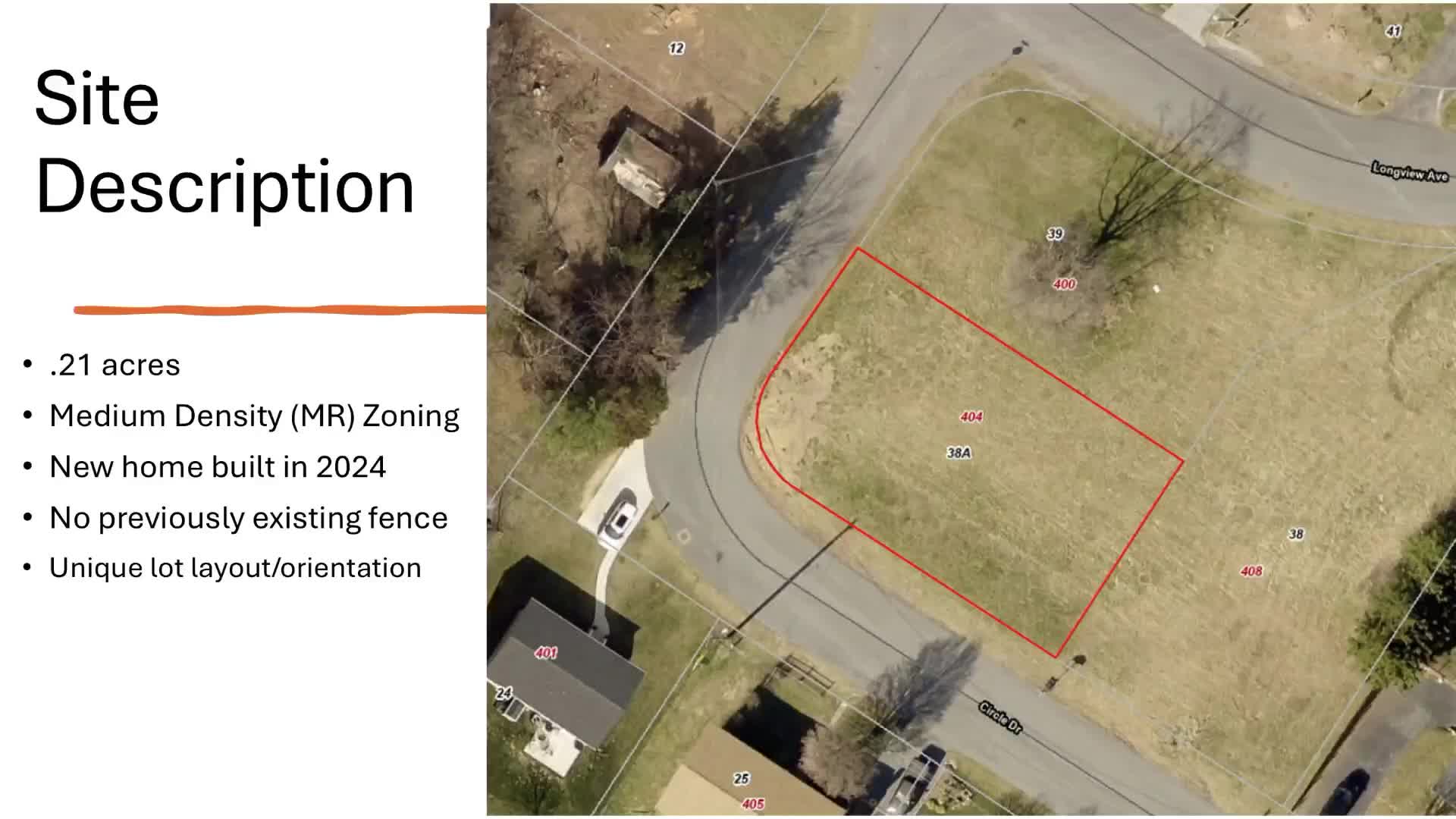
Committee recommends approval of conditional use permit to retain six‑foot front yard fence at 404 Circle Drive
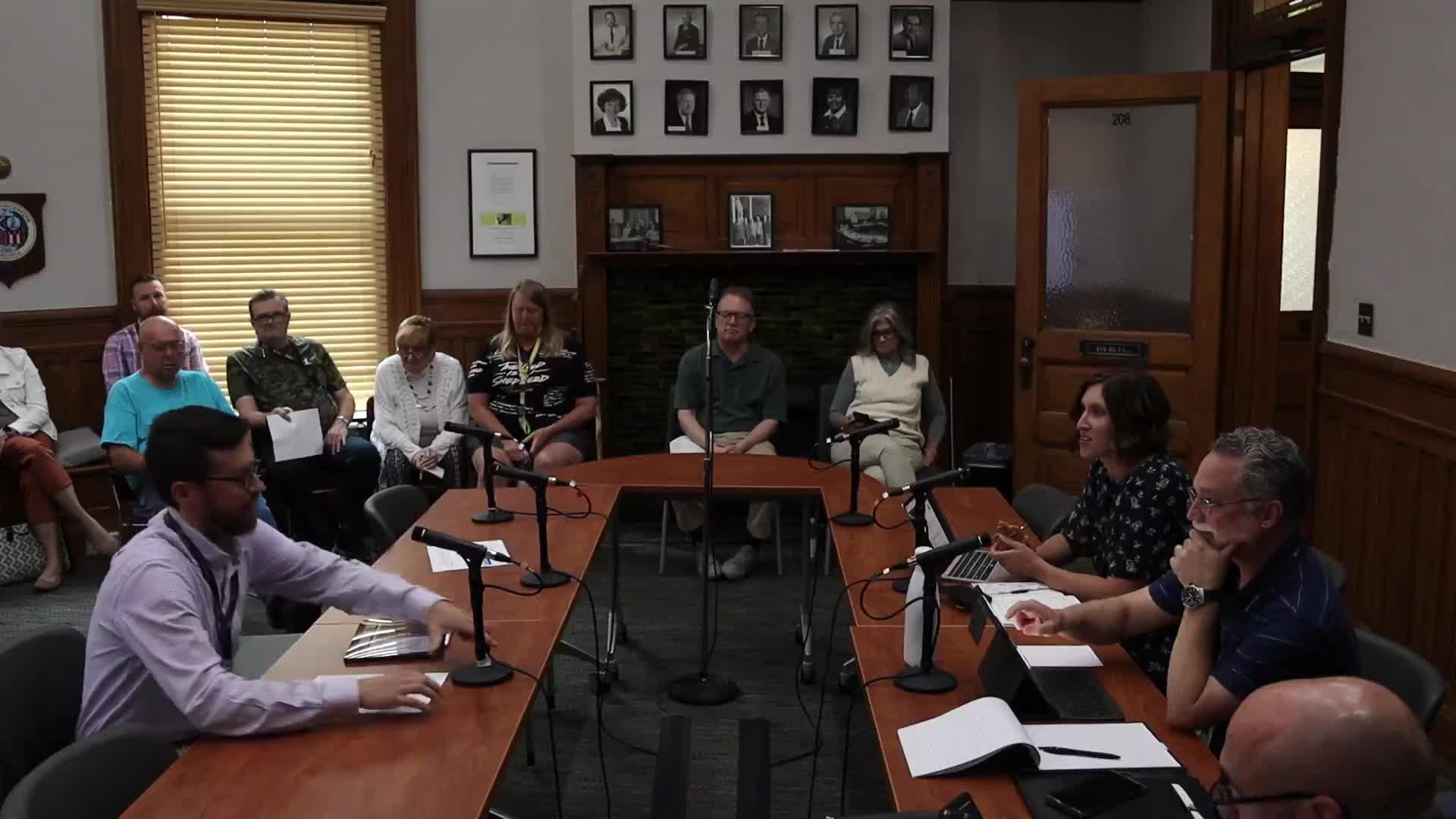
Committee forwards alley vacation request behind 22 West Whitlock to council without recommendation after neighbors disagree
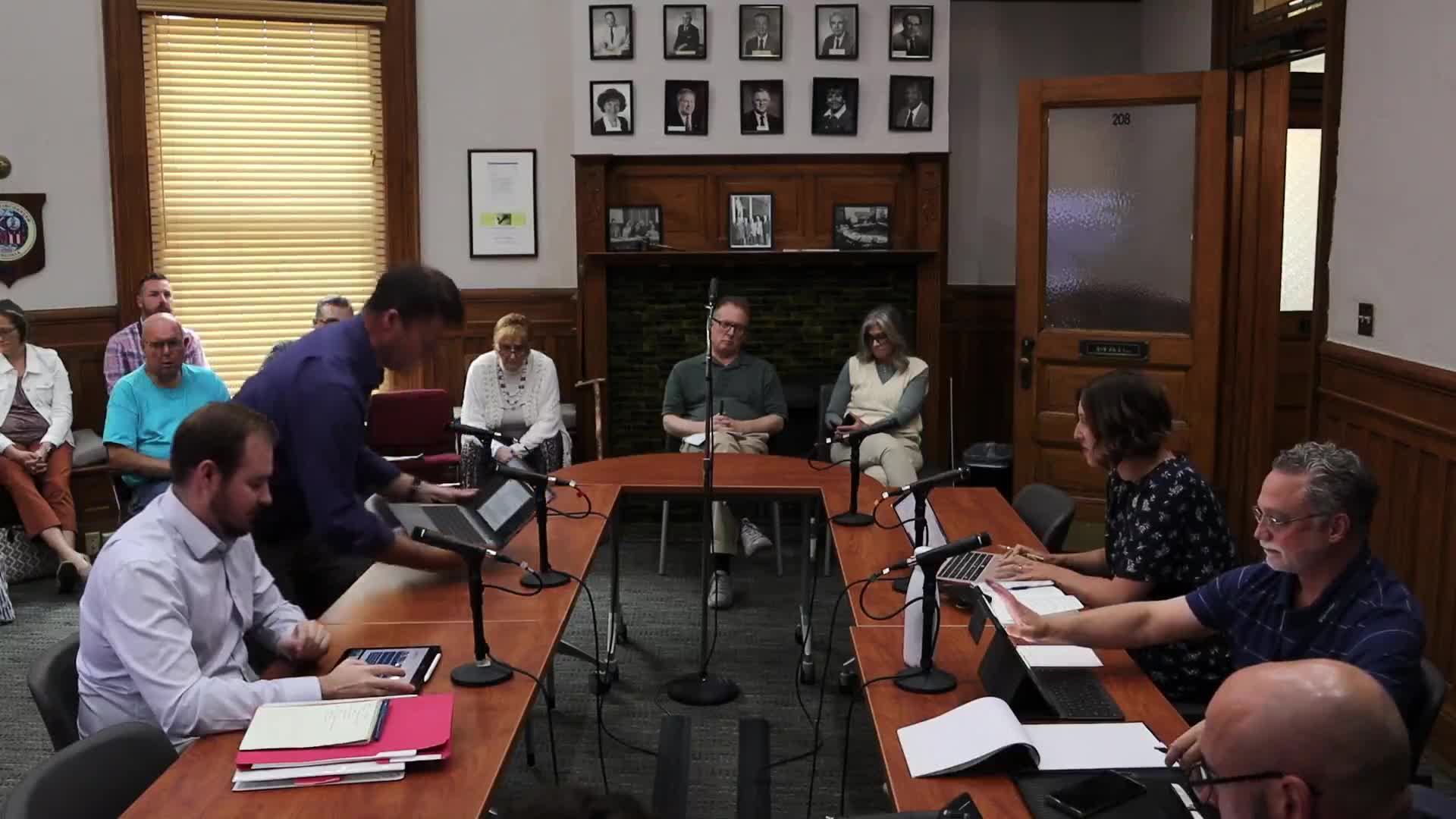
Committee recommends keeping a loop bus while shifting limited service to on‑demand WinReady; seeks Laurel Ridge contribution
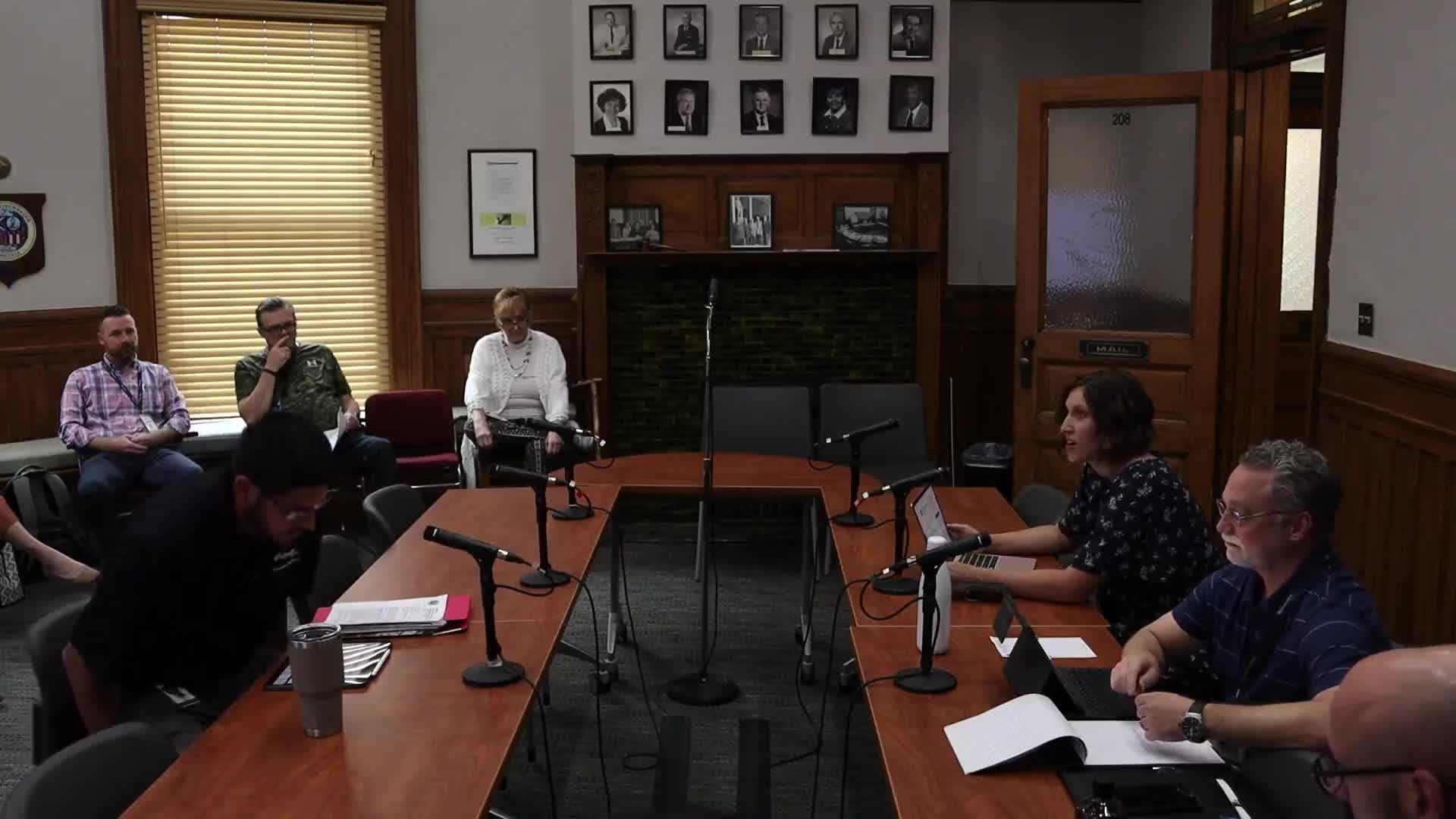
Planning panel forwards zoning text amendment to define shelters, charitable provision centers to City Council
